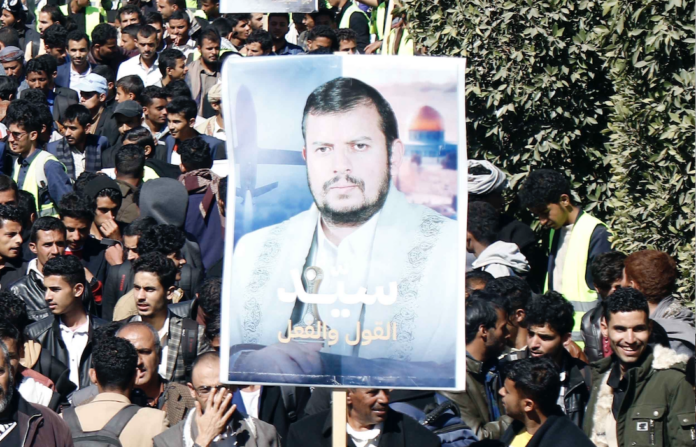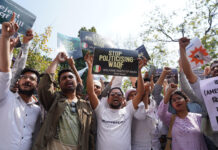The U.S. has re-designated Yemen’s Houthi Ansarullah movement as a “specially designated global terrorist group” in response to their attacks on shipping in the Red Sea.
This means it is now illegal for American citizens to provide any material support to the Yemeni group and any assets the Houthis may have in the U.S. will also be frozen.
Secretary of State Antony Blinken said in a statement that the Houthis have also carried out attacks on maritime vessels, including, military forces protecting commercial shipping since November 2023.
Blinken told the media: “These attacks against international shipping have endangered mariners, disrupted the free flow of commerce, and interfered with navigational rights and freedoms. This designation seeks to promote accountability for the group’s terrorist activities.”
Blinken added that if the Houthis cease attacks in the Red Sea and Gulf of Aden, the U.S. will “reevaluate this designation.”
The move comes days after the U.S. began responding to repeated attacks by the Iran-backed group on merchant vessels in the Red Sea.
The Houthis said their operations are intended to pressure Israel to halt its deadly onslaught on the Gaza Strip.
Subscribe to our newsletter and stay updated on the latest news and updates from around the Muslim world!
The Red Sea is a critical commercial waterway, connecting the Mediterranean Sea via Egypt’s Suez Canal with the Gulf of Aden.
Yemen’s Houthi group said on Wednesday that the U.S. decision will not deter them from supporting Palestine.

Houthi spokesman Sayyed Mohamed Abdel-Salam told Qatar-based Al Jazeera: “The U.S. decision will not have an impact on the ground. The American designation will not deter us from supporting Palestine and the Palestinian people .. The US decision will only increase our adherence to our position in support of the Palestinians.”
Tensions have escalated in the Red Sea amid Israel’s ongoing assault on Gaza, with Yemeni attacks on commercial ships forcing major companies to seek alternative routes.
The Houthis say their attacks aim to pressure Tel Aviv to halt its deadly onslaught on the Gaza Strip, which has killed at least 24,448 people since October 7.
The Red Sea is one of the world’s most frequently used sea routes for oil and fuel shipments.
On December 18, U.S. Defense Secretary Lloyd Austin announced the creation of a multinational mission to counter the attacks on commercial vessels in the Red Sea.
In January, the U.S. and UK launched airstrikes against Houthi targets in Yemen in retaliation for the attacks, which have created fears of a new bout of inflation and supply chain disruption.
Britain has urged Iran to “use its influence” with Yemen’s Houthis to prevent further threats to commercial shipping in the Red Sea, according to the Foreign, Commonwealth and Development Office (FCDO).
The statement came following a meeting between Foreign Secretary David Cameron and his Iranian counterpart Hossein Amir-Abdollahian at the World Economic Forum in Davos, Switzerland.
Cameron wrote on X: “Iran must cease supplying the Houthis with weapons and intelligence and use its influence to stop Houthi attacks in the Red Sea. Iran must also stop using the regional situation as cover to act recklessly and violate others’ sovereignty. I made this clear to FM @Amirabdolahian.”
He described the Houthi attacks on shipping in the Red Sea as “illegal and unacceptable.”
Iran’s Foreign Minister also Tweeted about their meeting, saying: “In a meeting with @David_Cameron in Davos, we exchanged views on various bilateral issues and developments in the region. I stated that the US and the UK must immediately cease supporting the war crimes of the Zionist apartheid regime against the Palestinians. They do not have the right to hold the security of the region hostage for the benefit of Netanyahu!”























